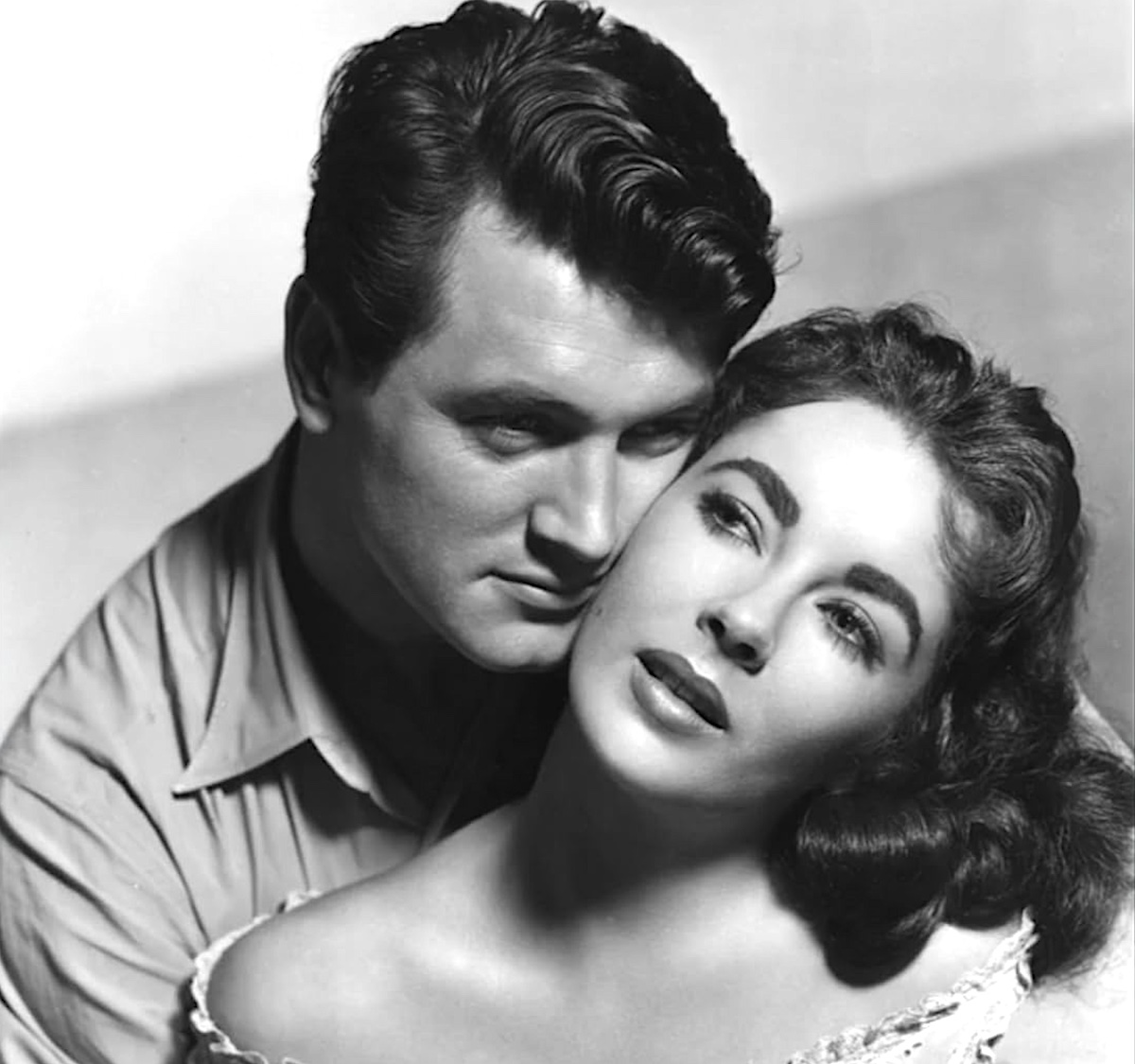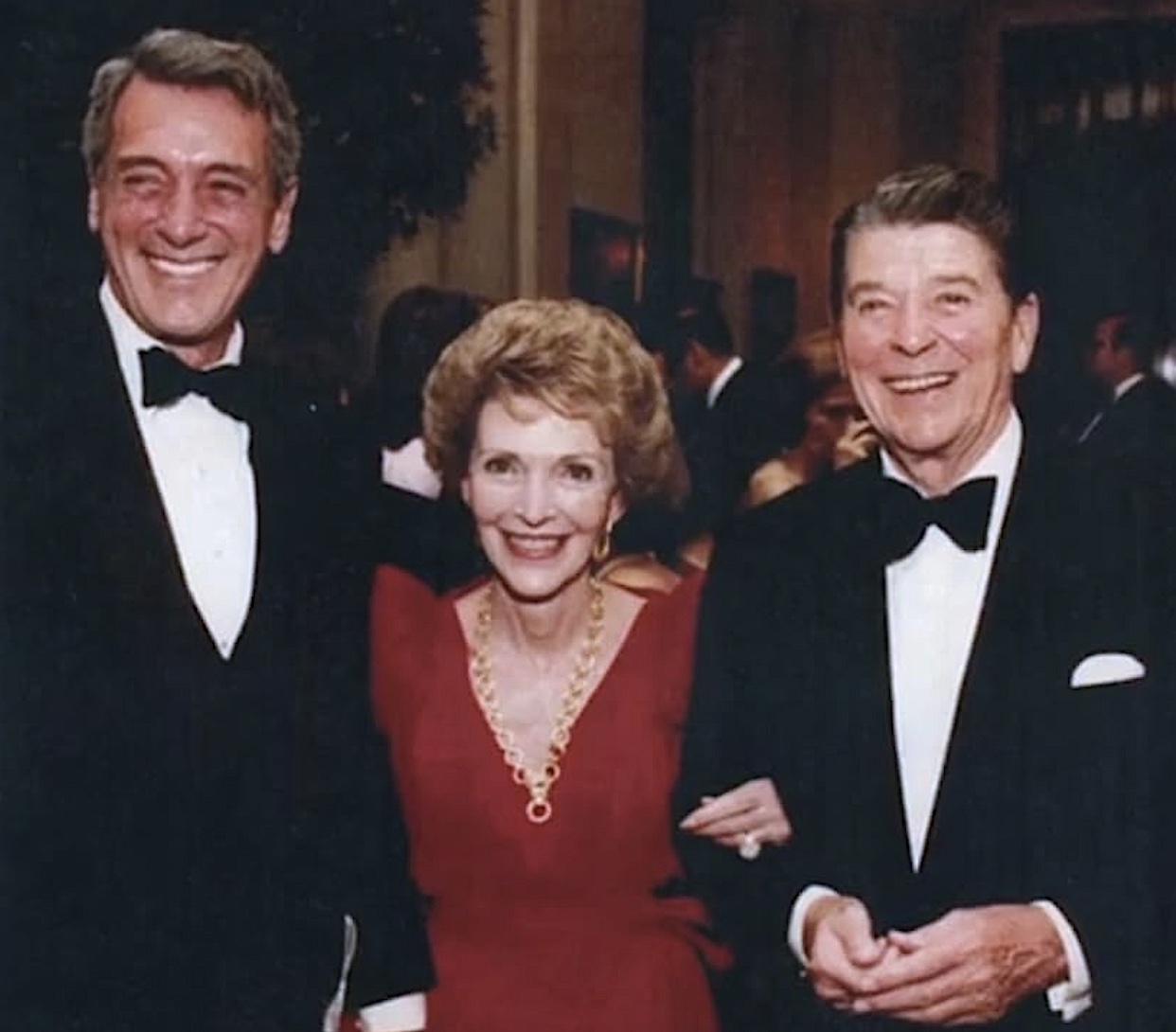Rock Hudson was built up as a silver screen archetype of heterosexual manhood, with his 6ft 5in frame and muscular physique, but his story has subsequently come to epitomise a Hollywood system built on illusions and delusions. Supposedly the kind of chiselled hunk every swooning female admirer would like to catch her before she hit the ground, Hudson’s private life was based around his coterie of gay friends and his gay agent, Henry Willson. In this documentary, director Stephen Kijak explores Hudson’s double life with revealing thoroughness, not least through interviews with Hudson’s close friends and former lovers.
Born Roy Scherer in little-known Winnetka, Illinois (his surname later became Fitzgerald after his mother remarried), the soon-to-be Hudson had served three years in the US navy before moving to Los Angeles. His arrival was perfectly timed for the post-war vogue for rugged macho-men in or out of uniform. Willson was like a movieland version of pop entrepreneur Larry Parnes, who created the likes of Marty Wilde and Billy Fury. Willson’s testosterone roster included Tab Hunter, Troy Donahue, Ty Hardin and many more, but Hudson was by far his greatest creation, and Willson worked hard to keep his secret gay life concealed. That included, on one occasion, dishing dirt on some of his other, lesser clients in exchange for keeping Hudson’s name out of the tabloids. It was also at Willson’s instigation that his secretary, Phyllis Gates, married Hudson in 1955. The union ended in 1958, with Gates claiming she never knew Hudson was gay. Which seems unlikely.
 Kijak is best known for his music documentaries, which include Stones In Exile (about the making of the Rolling Stones’ album Exile on Main Street), Scott Walker: 30 Century Man and If I Leave Here Tomorrow: A Film About Lynyrd Skynyrd. Hudson emerges from Kijak’s account as a decent guy who managed to keep his private life out of the Hollywood scandal sheets while building an impressive career as one of the biggest movie stars of the post-war era, though sometimes the director himself veers into tabloid-land. Not sure we really needed the quotes from one of Hudson’s lovers, Joe Carberry (“Rock had a sizeable dick… he tried to put that thing up my ass”), while the device of using lines from Hudson’s films to try to suggest retrospectively that they were secret winks and nudges about his homosexuality is a foolish gimmick.
Kijak is best known for his music documentaries, which include Stones In Exile (about the making of the Rolling Stones’ album Exile on Main Street), Scott Walker: 30 Century Man and If I Leave Here Tomorrow: A Film About Lynyrd Skynyrd. Hudson emerges from Kijak’s account as a decent guy who managed to keep his private life out of the Hollywood scandal sheets while building an impressive career as one of the biggest movie stars of the post-war era, though sometimes the director himself veers into tabloid-land. Not sure we really needed the quotes from one of Hudson’s lovers, Joe Carberry (“Rock had a sizeable dick… he tried to put that thing up my ass”), while the device of using lines from Hudson’s films to try to suggest retrospectively that they were secret winks and nudges about his homosexuality is a foolish gimmick.
It was Hudson’s prominent roles in two Douglas Sirk pictures, Magnificent Obsession and All That Heaven Allows, that busted him into the big time. Hudson provided a suitably wide-screen personality for Sirk to paint his grand romantic dramas on. Then in 1956 came his performance as Jordan “Bick” Benedict in George Stevens’s sprawling neo-Western Giant, which paired him with James Dean (in his last movie before his death) and Elizabeth Taylor, who became a lifelong friend of Hudson and a staunch supporter during his later battle with Aids (pictured above, Rock and Liz Taylor). The role won Hudson an Oscar nomination, but the gong went to Yul Brynner for The King and I.
 He made a trio of acclaimed comedies with Doris Day, most notably 1959’s Pillow Talk, but by the late Sixties Hudson’s film career was waning. He made a transition into television by playing the lead in McMillan and Wife, also taking roles in the mini-series Wheels and The Martian Chronicles. But by the time he was cast in the super-soap Dynasty in 1984, he’d already been diagnosed with Aids.
He made a trio of acclaimed comedies with Doris Day, most notably 1959’s Pillow Talk, but by the late Sixties Hudson’s film career was waning. He made a transition into television by playing the lead in McMillan and Wife, also taking roles in the mini-series Wheels and The Martian Chronicles. But by the time he was cast in the super-soap Dynasty in 1984, he’d already been diagnosed with Aids.
What’s especially striking from this account is the way the women in Hudson’s life were stoically loyal to him. Doris Day stoutly refused to dish any dirt, his Dynasty co-star Linda Evans was horrified by Hollywood’s intolerant attitude to homosexuality and Aids, and Liz Taylor helped him launch amfAR, the Foundation for Aids Research. Even Nancy Reagan was a friend (pictured above, Rock and the Reagans).
It’s an absorbing, bittersweet film that paints a major film icon in a different light. You wonder, though, how much Hudson – who never officially came out as gay – would have appreciated his carefully-guarded secrets being revealed in this way.















Add comment